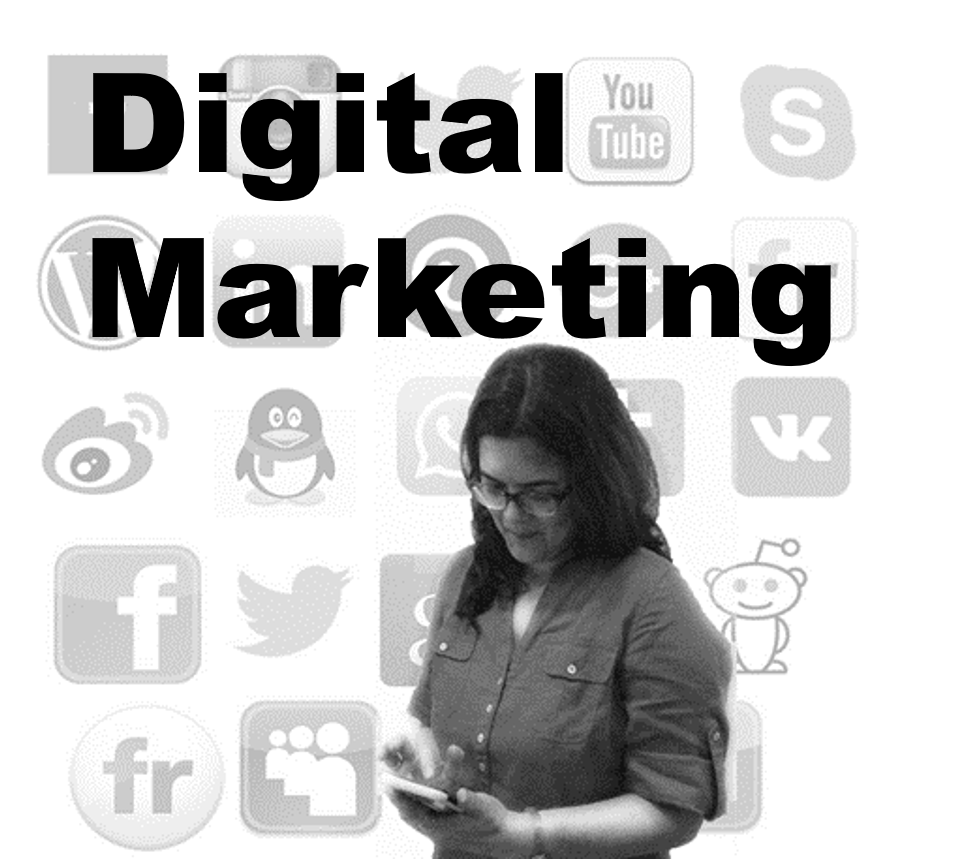-
Digital Marketing
Digital Marketing
New Media, New Imperatives
People Power
Engaging with Consumers in Cyberspace
Word-of-Mouth and Brand Meaning Management
Heightened Accountability
Dove Bottle Advertisement
Market Globalization
Marketing to Individuals
Media Convergence
Data Power
What Works Online
Sugarpova
Chobani
Building Online Assets
Apps
Content is King
Personalization
Buzz (word-of-mouth) Marketing
Growth of Advertising on the Internet
Advertising on the Internet
Outbound Advertising
Inbound Advertising
Viral Advertising
Digital Advertising Formats
Targeting
Mobile Advertising
Search Advertising
Social Media Advertising
- New Media
- Digital Marketing
- YouTube
- Social Media Analytics
- SEO
- Search Advertising
- Web Analytics
- Execution
- Case — Prop-GPT
ThinkBusiness: Dollars, Digits and Data
Today: Dollars, Digits and Data
ThinkBusiness: Disrupting marketing
Dove Bottle Ad
ThinkBusiness: Social Cloisters and Fake News
- Marketing Education
- Is Marketing Education Fluffy and Weak?
- How to Choose the Right Marketing Simulator
- Self-Learners: Experiential Learning to Adapt to the New Age of Marketing
- Negotiation Skills Training for Retailers, Marketers, Trade Marketers and Category Managers
- Simulators becoming essential Training Platforms
- What they SHOULD TEACH at Business Schools
- Experiential Learning through Marketing Simulators
-
MarketingMind
Digital Marketing
Digital Marketing
New Media, New Imperatives
People Power
Engaging with Consumers in Cyberspace
Word-of-Mouth and Brand Meaning Management
Heightened Accountability
Dove Bottle Advertisement
Market Globalization
Marketing to Individuals
Media Convergence
Data Power
What Works Online
Sugarpova
Chobani
Building Online Assets
Apps
Content is King
Personalization
Buzz (word-of-mouth) Marketing
Growth of Advertising on the Internet
Advertising on the Internet
Outbound Advertising
Inbound Advertising
Viral Advertising
Digital Advertising Formats
Targeting
Mobile Advertising
Search Advertising
Social Media Advertising
- New Media
- Digital Marketing
- YouTube
- Social Media Analytics
- SEO
- Search Advertising
- Web Analytics
- Execution
- Case — Prop-GPT
ThinkBusiness: Dollars, Digits and Data
Today: Dollars, Digits and Data
ThinkBusiness: Disrupting marketing
Dove Bottle Ad
ThinkBusiness: Social Cloisters and Fake News
- Marketing Education
- Is Marketing Education Fluffy and Weak?
- How to Choose the Right Marketing Simulator
- Self-Learners: Experiential Learning to Adapt to the New Age of Marketing
- Negotiation Skills Training for Retailers, Marketers, Trade Marketers and Category Managers
- Simulators becoming essential Training Platforms
- What they SHOULD TEACH at Business Schools
- Experiential Learning through Marketing Simulators
Chobani

Exhibit 19.8 CHOmobile sampling truck used for handing out free cups of Chobani yogurt at festive and family-friendly events. (Source: mealsandmovesblog).
Unlike Maria Sharapova, Hamdi Ulukaya, the founder of Chobani, lacked a significant footprint on social media when he first ventured into the yogurt business. Hailing from a dairy-farming family from Turkey, he moved to the U.S. in 1994 to study English as a Second Language.
In 2005, Ulukaya made the decision to purchase a defunct yogurt factory from Kraft Foods, based on his conviction that consumers would prefer the thick, strained yogurt that he grew up with in Turkey, over the “sugary, watery, and artificial” varieties that were available in the market at that time.
Starting with just 5 employees, and lacking a big marketing budget, Ulukaya made use of the internet and social media to reach out to a large base of bloggers, and to connect with consumers on Facebook and Twitter. The online buzz that these initiatives generated was instrumental to the success of the brand during its infancy.
Sales accelerated in 2010 spurred by the CHOmobile (Exhibit 19.8), a sampling truck, which handed out free cups of Chobani yogurt at festive and family-friendly events all over the U.S.
Chobani grew into a USD 1 billion empire within five years of launch, leading the U.S. yogurt by 2011, and Greek yogurt’s market share in the U.S. surged from less than 1% in 2007 to more than 50% in 2013.
Since 2013 Chobani’s yogurt sales have tapered and started to decline, and the company has expanded its product range to include Chobani Mezé yogurt-based dips, yogurt drinks, and foods for toddlers containing ingredients such as Omega-3 DHA and live and active cultures, in addition to yogurt and fruits.
Chobani’s remarkable success can largely be attributed to its highly effective social media strategy. According to Ulukaya, “We knew we had a great tasting, good-for-you product, now we just needed to get people to try it. Sampling and word-of-mouth was huge for us, especially at the start, as we had no money for traditional marketing or advertising.” So, from the outset, the company’s focus was on consumer-driven social media marketing.
Chobani’s website is littered with enticing recipes and captivating photos that excite and pique interest. As previously mentioned, the company reaches out extensively to bloggers, and maintains a robust presence on various social media platforms, including Facebook, Twitter, YouTube, Pinterest and Instagram, where it strives to create an atmosphere that is “warm and quirky, engaging and inviting”. Chobani also uses the foursquare search-and-discovery mobile app to promote tours and events, and to help consumers locate CHOmobiles.
As of 2023, Chobani boasts more than 1.4 million Facebook followers, a figure that places it well ahead of its competitors in the yogurt industry. Its YouTube channel, which was established in 2009, has amassed 15.5 thousand subscribers and garnered 106 million views to date.
Chobani is no longer a small company, and its marketing budget has expanded significantly, as evidenced by its sponsorship of multiple Olympic and Paralympic Games. These sponsorships, which provide athletes with free access to Chobani products, are among the company’s most impressive marketing accomplishments. The company’s participation in these events and its activities have spawned numerous stories that have helped to generate interest and excitement for Chobani on social media platforms.
Previous Next
Use the Search Bar to find content on MarketingMind.
Contact | Privacy Statement | Disclaimer: Opinions and views expressed on www.ashokcharan.com are the author’s personal views, and do not represent the official views of the National University of Singapore (NUS) or the NUS Business School | © Copyright 2013-2026 www.ashokcharan.com. All Rights Reserved.





